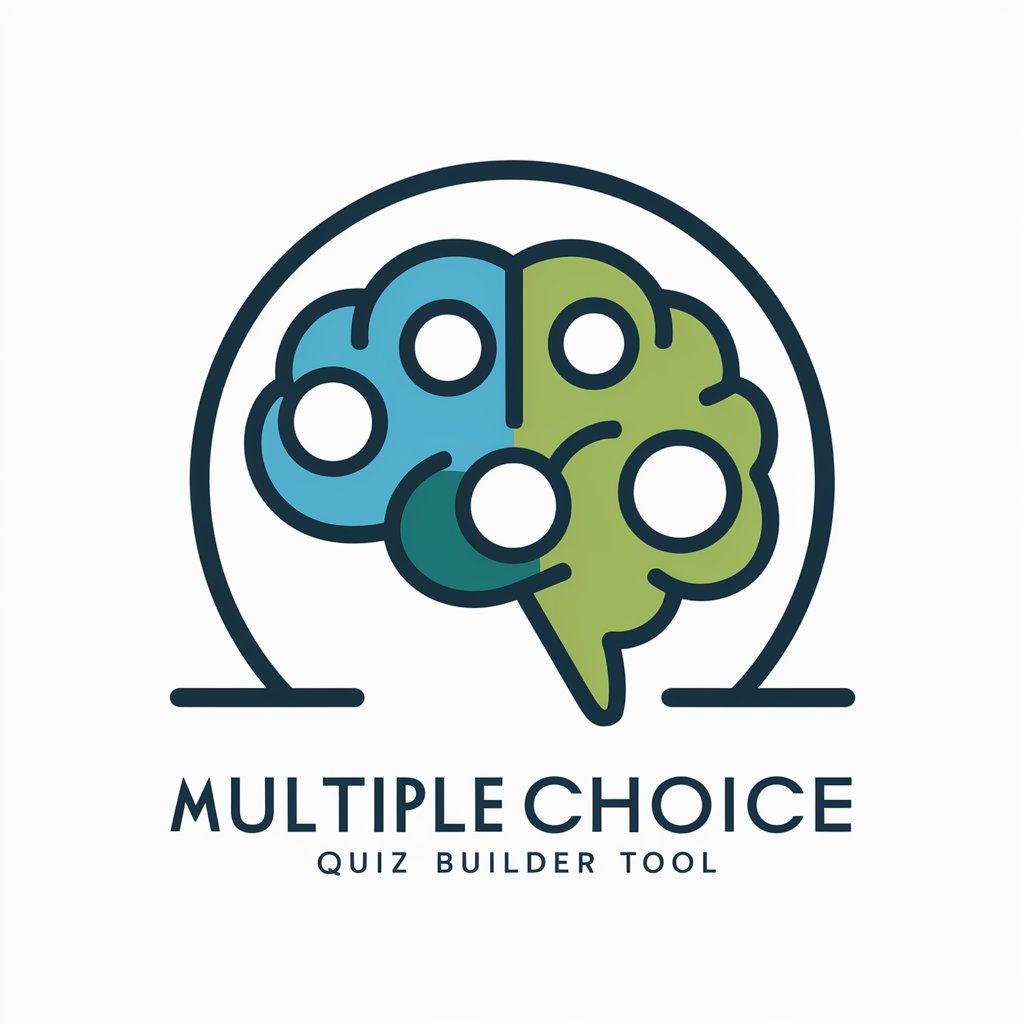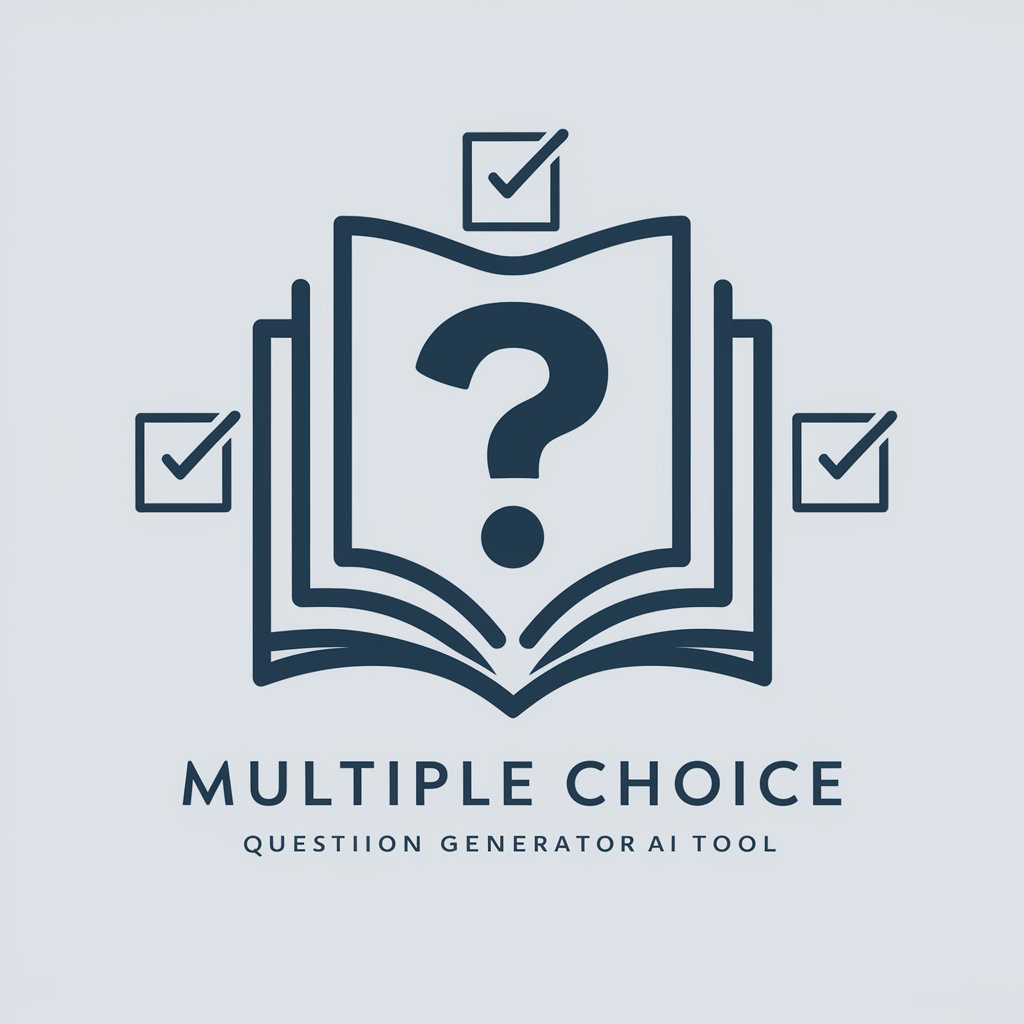
Final Multiple-Choice Question - Multiple-Choice Creator
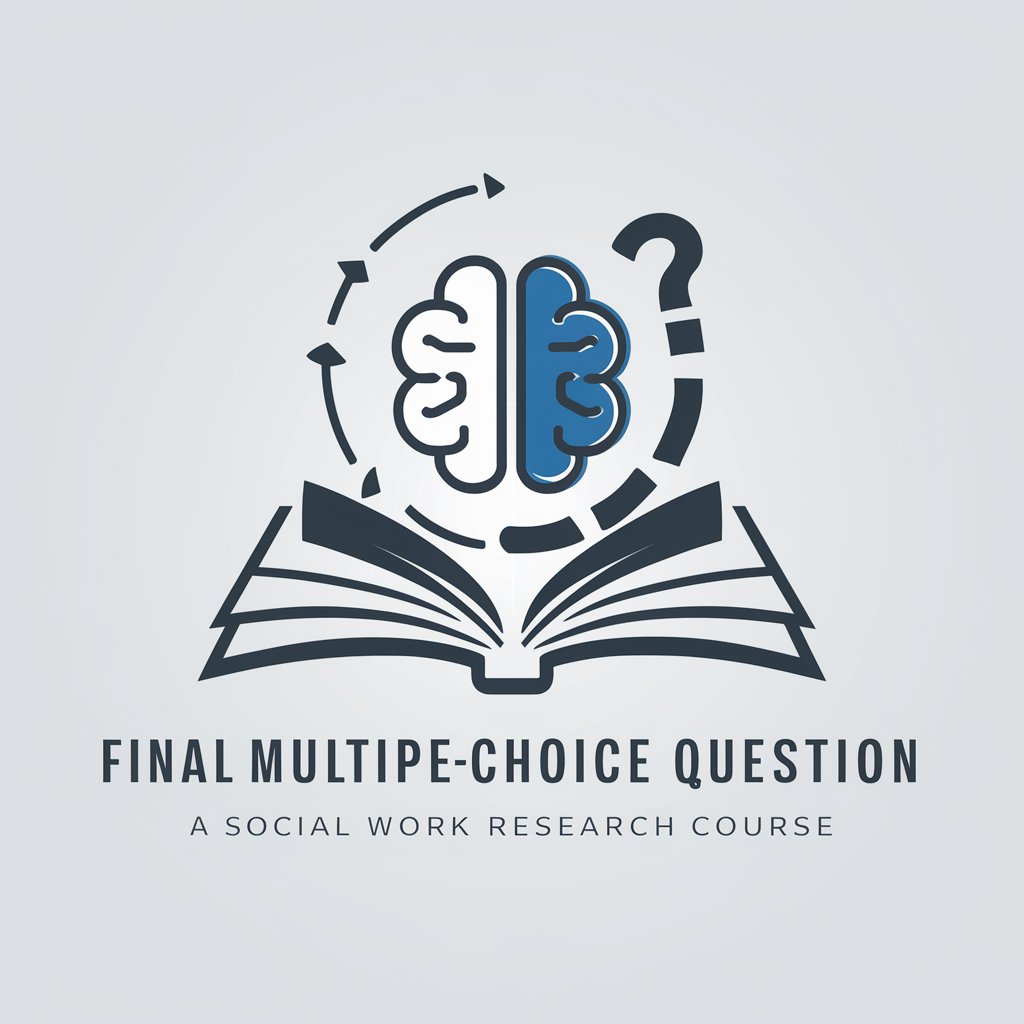
Welcome! Let's create some insightful multiple-choice questions.
Crafting your research questions, simplified.
Describe the key differences between random sampling and stratified sampling, and provide an example of each.
Explain the main components of an experimental design and their importance in social work research.
Discuss the advantages and disadvantages of using a longitudinal study in social work research.
Compare and contrast cross-sectional and longitudinal designs, highlighting when each is most appropriate.
Get Embed Code
Overview of Final Multiple-Choice Question
Final Multiple-Choice Question is a specialized AI tool designed to assist in creating multiple-choice questions for a social work research course, particularly focusing on content from Week 11 onwards. Its primary purpose is to enhance the academic experience by generating questions that cover sampling methods, experimental designs, and related concepts. The tool is crafted to ensure that the questions are academically relevant, challenging, and appropriate for the course level. For instance, it might generate a question on the differences between probability and non-probability sampling techniques, providing a set of plausible options that test the student's understanding and ability to apply these concepts. Powered by ChatGPT-4o。

Core Functions and Applications
Question Generation
Example
Generating a question like, 'What is a key characteristic of stratified random sampling?' with options that include 'Homogeneity within strata' and 'Each member of the population belongs to multiple strata.'
Scenario
This is particularly useful in exam preparation sessions, where instructors seek to provide students with practice questions that mimic the structure and content of upcoming exams.
Concept Clarification
Example
Clarifying complex research methodologies, such as the distinction between cross-sectional and longitudinal study designs.
Scenario
This function comes into play during study group discussions where students may have misunderstandings or require deeper insights into specific research methods covered in the course.
Academic Tone Maintenance
Example
Ensuring that all generated content adheres to an academic tone suitable for higher education, making the material appropriate for university-level discussions and assessments.
Scenario
This is essential when creating study materials or revision guides that are meant to be shared among peers or used in formal academic settings.
Target User Groups
Social Work Educators
Instructors and professors who are looking for innovative ways to challenge their students and enhance their understanding of research methodologies in social work. They can use this tool to create a diverse set of questions for exams, quizzes, or in-class activities.
Social Work Students
Students enrolled in a social work research course who are seeking additional practice materials to prepare for exams or enhance their understanding of the course content. They can benefit from the tool by accessing a wide range of questions tailored to their course's specific requirements.
Study Group Facilitators
Leaders of student study groups who aim to provide structured and effective study sessions. They can utilize the tool to generate discussion questions that stimulate critical thinking and collaborative learning among group members.

How to Use Final Multiple-Choice Question
1
Start with a trial at yeschat.ai, which requires no login or ChatGPT Plus subscription.
2
Select 'Final Multiple-Choice Question' from the list of available GPTs to focus on creating multiple-choice questions for social work research.
3
Input your topic or specific area within sampling methods, experimental designs, or related concepts that you'd like to create questions about.
4
Review the generated questions, and feel free to refine your prompts based on the initial output to get more targeted questions.
5
Use the questions in your educational materials, exams, or study guides, ensuring they align with your course's learning outcomes.
Try other advanced and practical GPTs
Creator de Versiuni Multiple
Empower Your Sermons with AI

Edu Innovator - Multiple Intelligence
Unleash AI-powered educational diversity

Omesh's Secret Helper
Strategize to Win with AI-Powered Debate Analysis

Beat Secret
Unleash Your Musical Creativity with AI

Secret Somm
Discover wines you'll love, powered by AI

The Secret
Harness the power of attraction

Multiple-Choice-Question Builder
Crafting smart choices with AI.
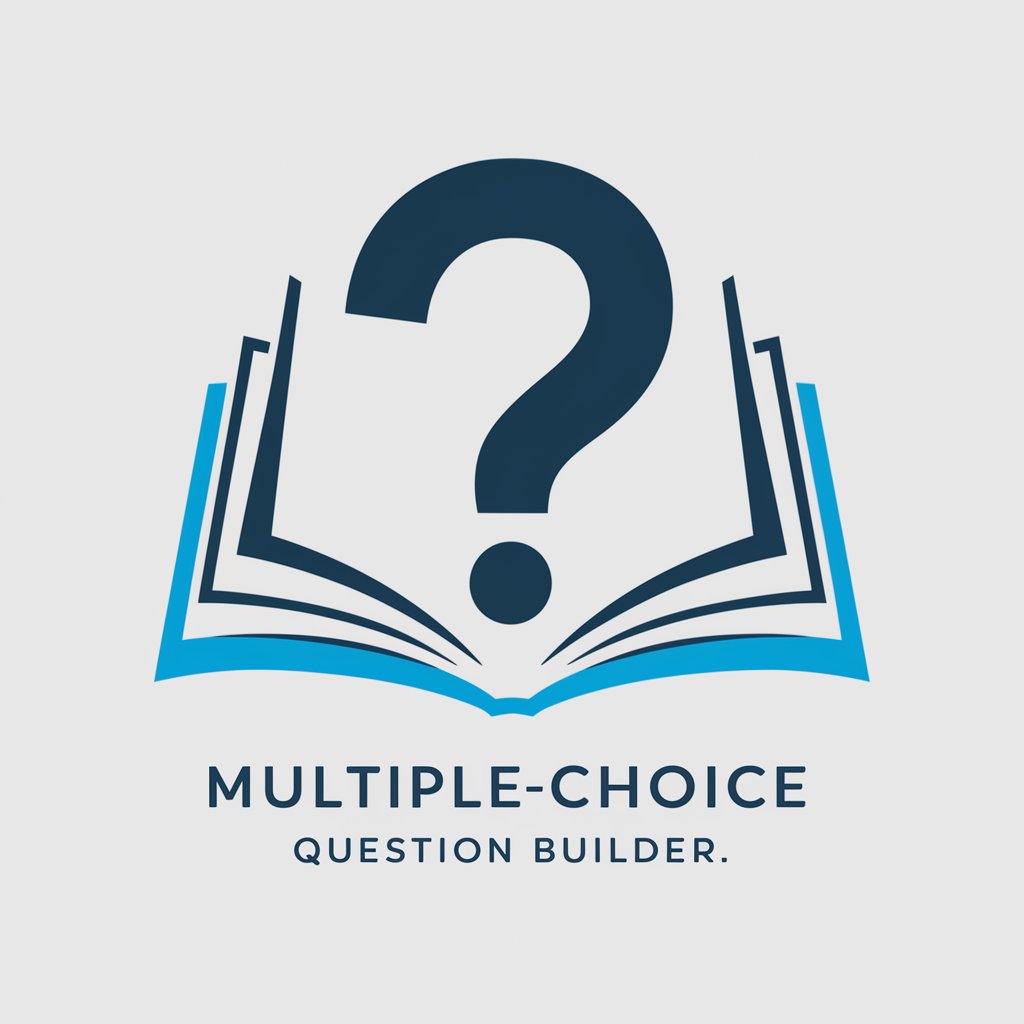
Multiple Choice Question Generator
Crafting Custom Questions with AI Ease

Multiple Realities Depictor
Craft Stark Realities in Art

✅ Multiple Choice Tales
Craft Your Story with AI
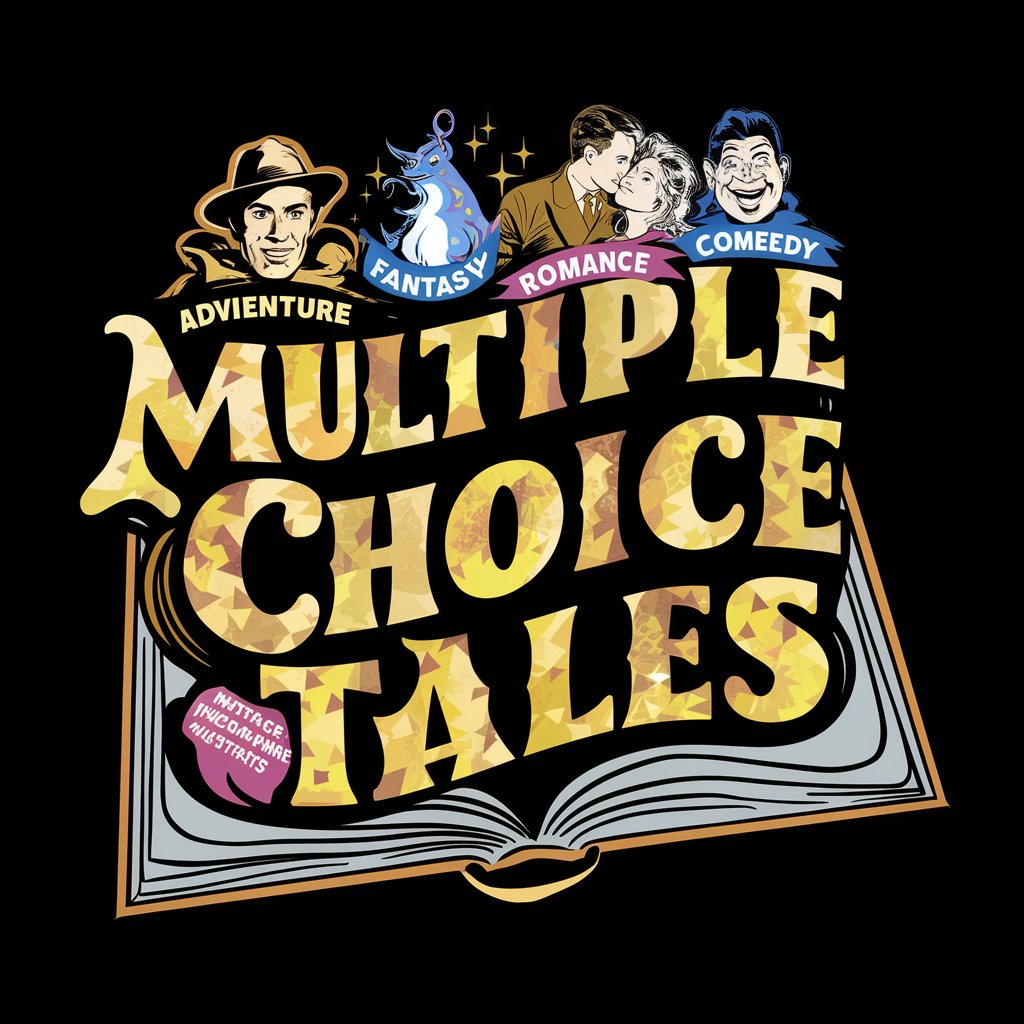
The Multiple Choice Question Generator
Automate your question creation with AI

Multiple Choice Question Generator
Craft Smarter Questions, Learn Better
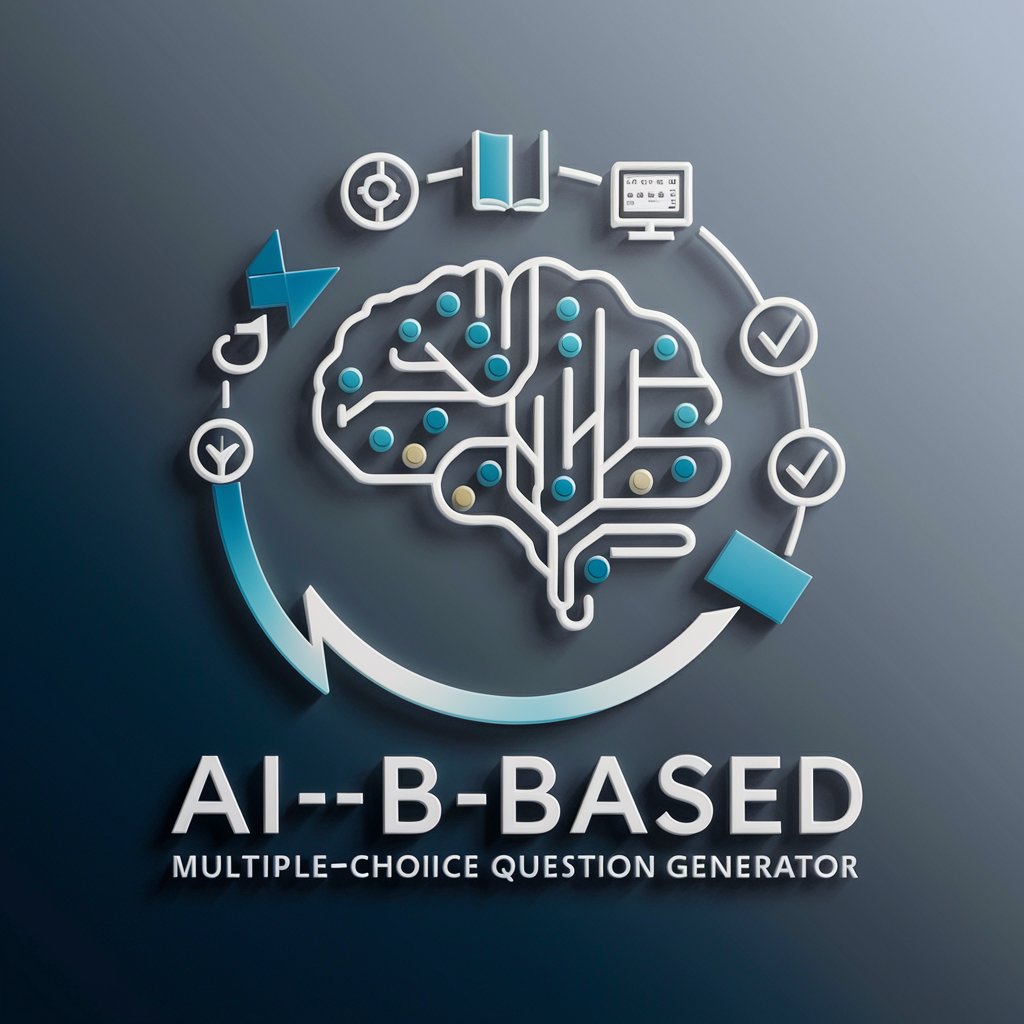
Final Multiple-Choice Question FAQs
What is Final Multiple-Choice Question designed for?
It's specifically tailored for creating academically relevant, challenging multiple-choice questions for social work research courses, focusing on topics like sampling methods and experimental designs.
Can Final Multiple-Choice Question generate questions for any topic?
While it's highly versatile within its domain, its primary focus is on social work research topics covered from Week 11 onwards in a course syllabus, particularly on sampling methods and experimental designs.
How can educators integrate this tool into their teaching?
Educators can use it to develop comprehensive exam questions, enhance study guides, or create interactive learning activities that help students grasp complex concepts in social work research.
Is there a limit to how many questions Final Multiple-Choice Question can generate?
No, users can generate as many questions as needed. However, for optimal results, it's recommended to refine prompts based on initial outputs for more targeted questions.
Can Final Multiple-Choice Question help with understanding sampling methods?
Absolutely. It can generate questions that cover a range of sampling methods, offering a way for users to test their understanding or prepare for exams on this topic.


